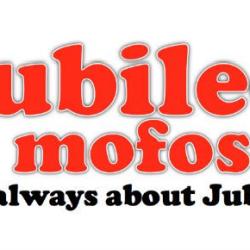Warren Clements of The Globe and Mail is the latest language columnist to discover the words slacktivist and slacktivism.
The Globe and Mail is based in Toronto, so it's a bit of a shame that Clements misses the local angle: that word slacktivism was coined by a native son — by Dwight Ozard of London, Ontario, in fact.
If you're searching for the origin of this word, Google tends to direct you to Paul McFedries delightful Word Spy site, and to the 2002 entry on the word slacktivism. This is where Clements winds up, relaying McFedries' earliest citation of a Feb. 27, 2001, Newsweek article and his note that:
That's certainly the dominant prevailing meaning of the word, but Clements also digs up another early use that suggests something rather different. A 2000 article in U-Wire, he notes, refers to "television host, filmmaker, author and self-confessed slacker-activist (slacktivist, if you will) Michael Moore." Whether or not you're a fan of Michael Moore's, he's clearly someone whose idea of activism goes far beyond forwarding e-mails.
That description of Moore gets closer to the original use of the word. I can't say "original" with 100-percent certainty, mind you, since McFedries doesn't tell us the context of that 1995 Usenet citation, but as you can see from the scans here, "slacktivism" was the title of a seminar series that Dwight and I gave at the Cornerstone Festival in 1995.
Cornerstone is the annual music festival and refugee camp organized by the Jesus People USA every summer on farmland in western Illinois. The word "organized" there probably isn't quite right, actually, it's four days of tents, mud and rock & roll held together by providence and hippy optimism. It's probably the closest thing this side of the pond to Greenbelt, if that helps to give you an idea.
The festival is always on the weekend nearest July 4, but the C-Stone people needed our seminar title and summary/sales-pitch much earlier for their publicity materials. Those included print ads and articles in their own magazine and others as well as those broadsheet newsprint mailers that they send out to a few hundred thousand people starting around March. So thanks to Cornerstone's publicity apparatus, such as it is, Dwight's word "slacktivism" got splashed about fairly widely in early 1995, and was then given another boost at the festival itself, which was attended by 60,000 or so people as well (most of whom, of course, did not attend our seminars). It thus seems likely that Dwight's coinage preceded — and may have been the source — of the word's first appearance on Usenet.
Our "slacktivism" seminars were not about finding minimal effort ways to feel self-righteously smug, as per the online-petition, e-mail-forwarding dominant sense of the word after it re-emerged. We chose the theme of "slacker activism" (which Dwight shortened, despite my objection that it sounded gimmicky) as a way of confronting the use of "slacker" as an epithet by Baby Boomers who had heard of, but not seen, Richard Linklater's 1991 movie and had taken its existence as confirmation of their suspicion that you kids these days are lazy and nowhere near as concerned and committed as they were back in the '60s. We countered that with dozens of stories of then-young people doing difficult, necessary and beautiful work all over the country, work that by its nature had to be done on a small, personal scale. The direction we were suggesting was bottom-up rather than top-down; less marching in the streets and more The Man Who Planted Trees.
At some point I should probably dig through my old notes from those seminars and retell some of those stories here. My point today though is just this: Until someone comes up with evidence of a pre-1995 use of the term "slacktivism," I'm going to consider it Dwight's word and to continue using it the way he did.
















